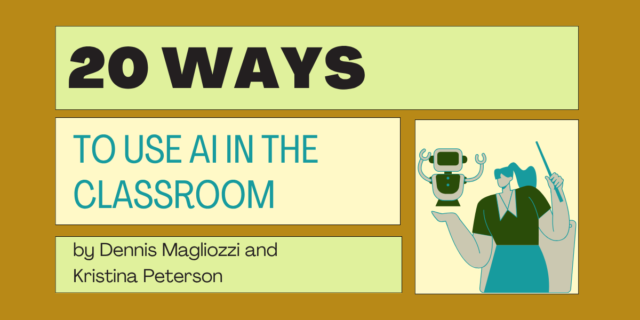
Elementary school teachers have repeatedly told me they’re being asked to squeeze more instruction into the school day. The addition of high-stakes testing in many districts makes the task of fitting everything in even more urgent.
Elementary school teachers have repeatedly told me they’re being asked to squeeze more instruction into the school day. The addition of high-stakes testing in many districts makes the task of fitting everything in even more urgent.
One way teachers are using their instructional time more efficiently is by teaching content area topics during Reading and Writing Workshops. There are many benefits to teaching this way, primarily that opportunities for students to engage with content in different ways tends to increase retention and understanding.
“Requiring students to speak and write about new ideas, solve and talk about conceptual problems, and in other ways actively engage with new thoughts enhances learning.”
- The McGraw Center for Teaching and Learning
>> Addressing content area topics in the Reading Workshop:
- Gives teachers opportunities to deliver explicit instruction about how to read information texts such as articles, encyclopedias, text books, maps, and primary sources. Facility with these reference materials is essential for success on many tests.
- Provides dedicated time for kids to read content-area text with the support of teachers and peers.
- Supports students’ learning how to research, a skill that will serve them well throughout education and life.
>> Addressing content area topics in the Writing Workshop:
- Requires students to express their thinking in a clear, organized fashion. Again, this skill is critical for academic and testing success.
- Teaches students to synthesize their learning, and reshape it into an original piece of work.
- Provides the opportunity to embed learning more deeply. When students interact with the same information in different ways and at different times of the day, they are more likely to remember it, rather than simply learning and forgetting.
There are several excellent standards-aligned, content-area units within the Units of Study. For example, the fourth grade reading unit “Reading History: The American Revolution” and the writing unit “Bringing History to Life” expose students to a variety of reference materials with strong scaffolding and support. Students learn about Colonial America and the Revolutionary War, and gain an understanding of how to engage with information text for research, and how to craft their own information texts to teach others. This unit can be adapted to accommodate different social studies topics.
Creating connections across the school day and across different disciplines helps students learn more deeply, creates a holistic learning experience, and provides skills that students need to succeed on tests, in academics, and in life.
Twice a month on Wednesday nights at 7:30 pm EST the Teachers College Reading and Writing Project hosts a Twitter chat using the hashtag #TCRWP.
Tonight's Twitter Chat (Wed. Jan. 8, 2020) will feature Mike Ochs @readwritemike, Casey Maxwell @ctyinthecity, and Dwight McCaulsky @McaulskyDwight. Join us!
Not on Twitter? Take Heinemann’s free Twitter for Educators course here.


